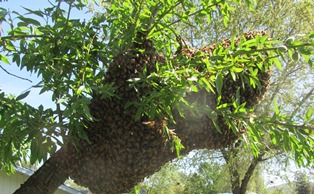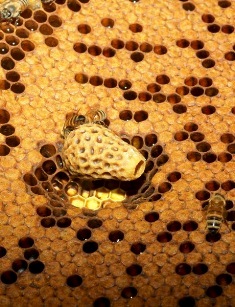Buying Fair Trade Generates More than Good Taste
We all love our local farmers’ markets where the freshest organic ingredients–direct from the farm to our tables–are easy to find and purchase. And they taste so good. But sometimes, we consumers desire something grown beyond America’s borders, such as tea, coffee, exotic spices, and chocolate. And this is where choice and purchasing power has consequences.
When you choose to buy products displaying a FAIR TRADE certification logo, your action directly and positively impacts the lives of farmers, growers, artisan craftspeople, commodities producers, and their workers in communities in developing nations.
As consumers demand better products and better working conditions for workers, the Fair Trade movement has more clout to lobby on behalf of commodity farmers, impoverished workers, and child laborers.
If you love chocolate, consider this: seventy percent of the world’s cocoa beans is produced in Cote d’Ivoire and other Western African countries. Pay is nominal at $2 USD/per dieum and, according to UNICEF, more than a half million children labor under dire working conditions in the cocoa fields in these bean-producing countries even though child labor is illegal in the cocoa industry.
Coffee was one of the first Fair Trade certified products but today’s consumers can now also find Fair Trade certified cocoa, wine, cotton, fruit, tea, red palm oil, coconut oil and associated products, chocolate, honey, quinoa and other ancient grains, beans, sugar, and bananas, to name a few items.
The Fair Trade Movement has been around since mid last century. It began as a mainly North American/European social movement to aid poor farmers, commodity producers, and laborers in developing nations to achieve more favorable trading conditions. Fair Trade also promotes sustainability.
Choosing to buy a product carrying the Fair Trade certification label means your consumer decision will impact more than your taste buds–it will have positive ramifications for workers, commodity producers, and their communities beyond America’s borders.
Honeybees Have Distinct Personalities
I don’t wear perfume in the garden least the bees think I’m a flower and light on me. But if they do, I let them walk around and explore. I don’t swat at them. Why would I? Honeybees are generally among the most docile of all bees.
Honeybees also have different personality types, according to research published in 2012 in the magazine Science and based on a study by Gene Robinson, University of Illinois entomology professor and director of the Institute for Genomic Biology. See, http://news.illinois.edu/news/12/0308bees_GeneRobinson.html
Scavenging and reconnaissance work carries more risk and challenge, whether you are human or honeybee. An adventuresome personality is usually best suited for that kind of work. Robinson and his researchers observed that the honeybees that do the nest and food scouting express distinct patterns of gene activity in molecular pathways that have been associated with thrill-seeking.
Whereas the adventurous scouts choose the thrill of taking off, the more intrepid and timid bees tend to stick closer to home, doing the tasks of building the hive, cleaning it, caring for the babies, and making honey. Robinson’s research debunks the ages-old idea that the colony’s workers are interchangeable.
America’s first honeybees arrived in from Europe by ship to the American colonies in the 17th century. It took approximately 200 years for the honeybees to get to the West Coast from that early introduction. Some went feral. See, http://www.orsba.org/htdocs/download/Honey%20Bees%20Across%20America.html
The most aggressive honeybee personality is the Africanized bee (aka, killer bees). These bees attack (often in droves) if they perceive a threat to their nest or queen. See, http://www.independent.ie/world-news/americas/couple-attacked-by-swarm-of-30000-bees-who-kill-their-two-horses-29456104.html
The Africanized bees have spread from Brazil, where honeybees from Europe (highly valued for pollinating crops and producing honey) were interbred with bees from Africa. These bees were inadvertently released in the 1950’s in Brazil and began to migrate north. They are now in Texas, New Mexico, Nevada, Arizona, and California. See, http://bees.ucr.edu/ahb-facts.html
All this information about work and personality types as it relates to honeybees makes me wonder: If we humans suited our work to our personality types, would we work as contentedly as do the bees in the garden and those in the hive?
 Facebook
Facebook Goodreads
Goodreads LinkedIn
LinkedIn Meera Lester
Meera Lester Twitter
Twitter






